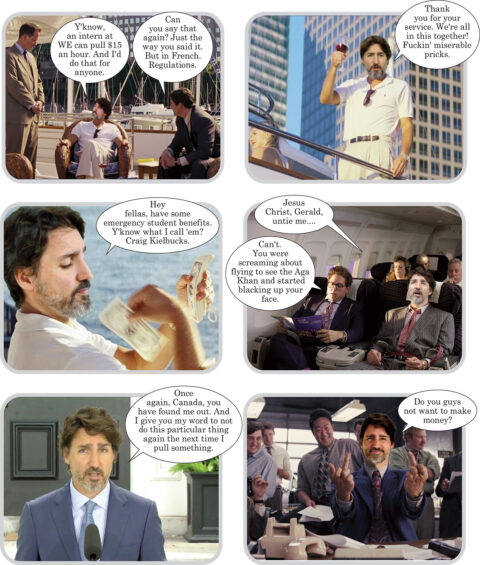I have to admit that Justin Trudeau is a very talented political campaigner and Canadian politicians always need to take that into account in dealing with him. I’m very much not a fan, but he has accomplished something I didn’t think was possible — his efforts in office have persuaded me to move Pierre Trudeau down to second-place in my personal list of “Worst Prime Ministers of Canada”:
For the longest time, Justin Trudeau was the party’s best asset. It didn’t matter if the Liberals trailed the Conservatives by a few points, the prime minister was viewed by Canadians as the best choice to continue to lead the country when compared to the other party leaders.
That hope now lies in tatters. Trudeau now trails Pierre Poilievre by double digits for preferred prime minister. More importantly, Trudeau trails his party on the generic (“who would you vote for?”) ballot question by nine points. What this means in plain language is that a significant number of people are still willing to vote for the Liberals, even though they no longer believe that Justin Trudeau is the best candidate to be prime minister. In only one demographic — women over the age of 55 — does the prime minister lead Poilievre. More importantly for Trudeau, only 45 per cent of Liberals believe he would make the best prime minister; 77 per cent of Conservatives believe the same thing about Poilievre.
For the first time in his decade as leader, Justin Trudeau is a drag on the Liberal Party of Canada.
This has been wondered about for months. I have always believed that Trudeau gave the party a better chance of success in the critical places in which it absolutely must win (in Quebec, in the B.C. Lower Mainland and in the GTA) than any other hypothetical leader would. He is a uniquely talented political campaigner. He went from third to first in the campaign in 2015, he recovered from a blackface scandal that would have ended a lesser campaigner in 2019, and he almost-single-handedly saved a Liberal campaign in 2021 that fell flat out of the gate and needed almost three weeks to find anything that even remotely resembled a coherent message.
That was then, though, and today, this is the longest and most significant stretch of time since election night in 2015 where Trudeau has been a personal liability for Liberals. This is a massive change that I’m not sure the public, and even many Liberals, have fully appreciated.
There is still an argument to be made, even at this late stage, that Trudeau remains the sole unifying force for a party whose main objective is the pursuit of power. That he is the only leader capable of forging the fractured elements of the current Liberal coalition together. You could convince me of these arguments.




